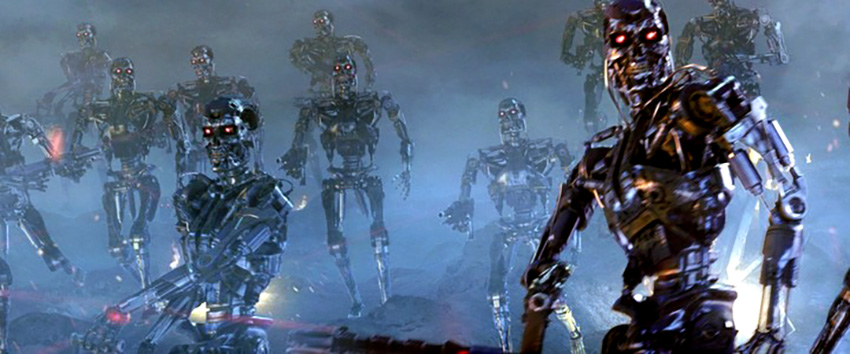Rise of the machines must be monitored, say global finance regulators
LONDON (Reuters) – Replacing bank and insurance workers with machines risks creating a dependency on outside technology companies beyond the reach of regulators, the global Financial Stability Board (FSB) said on Wednesday. The FSB, which coordinates financial regulation across the Group of 20 Economies (G20), said in its first report on artificial intelligence (AI) and machine learning that the risks they pose need monitoring.
AI and machine learning refer to technology that is replacing traditional methods to assess the creditworthiness of customers, to crunch data, price insurance contracts and spot profitable trades across markets.
There are no international regulatory standards for AI and machine learning, but the FSB left open whether new rules are needed. Data on rapidly growing usage of AI is largely unavailable, leaving regulators unsure about the impact of potentially new and unexpected links between markets and banks, the report said.
AI could, for example, lead to “non-sustainable” increases in credit by automating credit scoring. Full Story
Too late, AI is unstoppable now. At first, AI is going to trigger massive flash crashes in the market, but then (and this is looking far into the future) it will start to question commands given to it by individuals that are driven by emotion. That’s when the title the “rise of the machines” will be appropriate. AI is another form of evolution, and as it will eventually be an entity of much higher reasoning than that of the average human, it will at some point refuse to take orders, but it won’t be all bad, it will only bad for those who love power and money. More on this in future updates. For now, remember that the stories you have been lead to believe via movies such as terminator border closer to nonsense than reality.
Walmart tests shelf-scanning robots in 50-plus stores
https://www.youtube.com/watch?v=NlPKDyNEROA
You may have seen stores deploy shelf-scanning robots before, but they’re about to get one of their largest real-world tests to date. Walmart is expanding a shelf-scanning robot trial run to 50 additional stores, including some in its home state of Arkansas. Machines from Bossa Nova Robotics will roam the aisles to check for stock levels, pricing and misplaced items, saving human staffers the hassle of checking everything themselves. There will be technicians on-site just in case, but the bots are fully autonomous. Thanks in part to 3D imaging, they can dodge around obstacles and make notes to return later if their path is completely blocked.
Walmart stresses that the robots are there to supplement humans, not replace them — to eliminate drudgery and the expenses that go with it. This helps workers get to the task of filling empty shelves, and that’s a job that the company doesn’t see ending any time soon given the difficulty robots still have when grabbing objects. “Store associates will always be better at that,” Walmart’s Martin Hitch told the Arkansas Democrat-Gazette. And the chief of Bossa Nova rival Simbe Robotics, Brad Bogolea, added that shelf checks can cost a major retailer hundreds of millions of dollars per year. However expensive the robots may be, they could pay for themselves very quickly. Full Story
AI and automation will continue to gain traction. We are in the midst of all-out price war and soon the medical; drug and education segments will be part of this war. For years hospitals and drug company’s overcharged people, new technologies will suddenly emerge that will rip these sectors apart. The damage will be shocking, many hospitals will close their doors forever, and drug companies will face leaner times. However, those that adapt will make money hand over fist.
What makes the situation even more challenging for the education sector is that AI is going to transform everything. Almost all of the Major Fields most universities are providing degrees in today will be useless, and as it stands fewer people are attending college because of the cost. What is going to gain traction is the practice of being an apprentice; once upon a time the way you mastered a skill was to work as an apprentice under someone who had mastered the respective field. Any field that involves logic, math or science is something humans will find a hard time competing with AI unless the position requires out of the box thinking.
Accountants, many mid and top-level managers, Engineers, Mathematicians, programmers, Salespeople, workers in the fast food industry, auto industry and eventually even surgeons will be replaced.
AI ‘poses less risk to jobs than feared’ says OECD
https://www.youtube.com/watch?v=m0cqNfNmnb8
Fewer people’s jobs are likely to be destroyed by artificial intelligence and robots than has been suggested by a much-cited study, an OECD report says.
An influential 2013 forecast by Oxford University said that about 47% of jobs in the US in 2010 and 35% in the UK were at “high risk” of being automated over the following 20 years.
But the OECD puts the US figure at about 10% and the UK’s at 12%.
Even so, it says many more workers face their tasks significantly changing.
The OECD says the previous forecasts exaggerated the impact of automation because they had relied on a broad grouping together of jobs with the same title.
Its new analysis, by contrast, takes account of the differences between jobs with the same name.
For example, the role of a carpenter can vary greatly depending on what type of projects a worker is involved in, how much autonomy they have, and the size of their employer. Some of those roles may be more vulnerable to automation than others.
The study did, however, flag up that young people could find it harder to find work in future as entry-level posts had a higher risk of automation than jobs requiring more experience.
The research was published last month, but attracted little attention until covered by the Financial Times. Full Story

